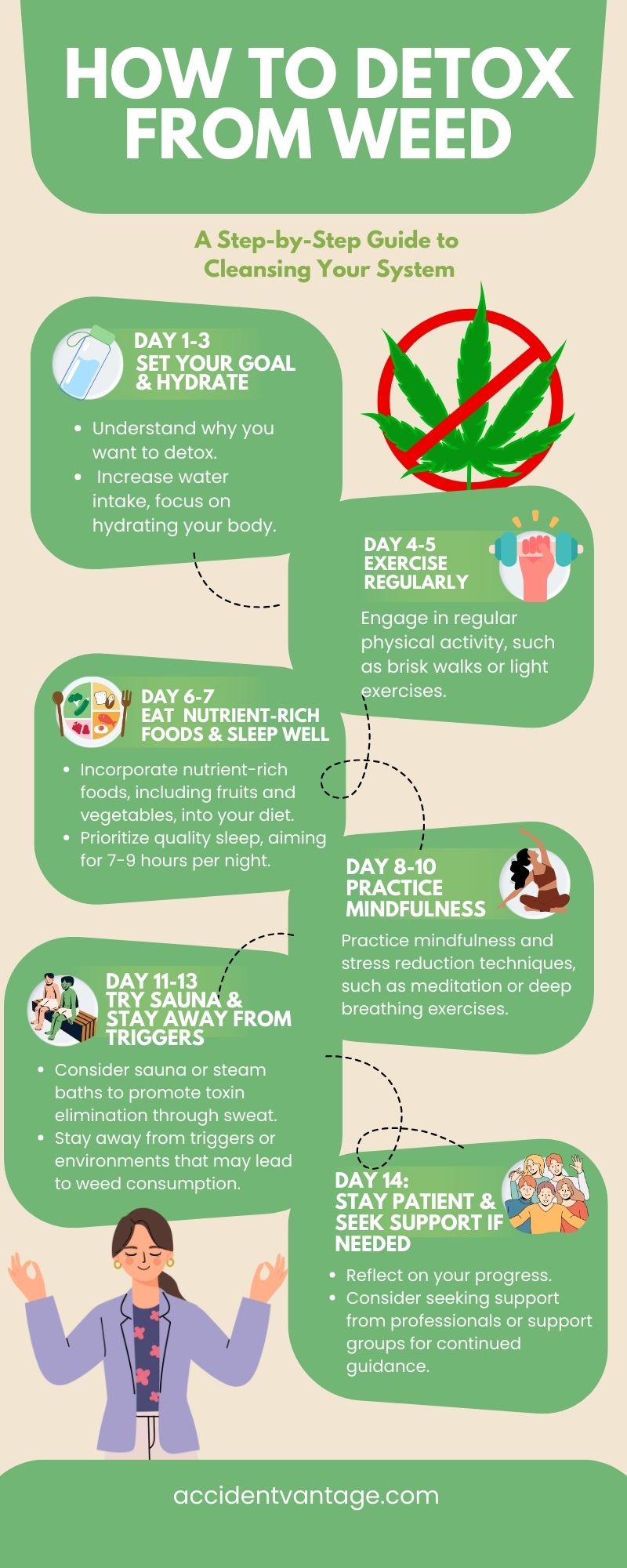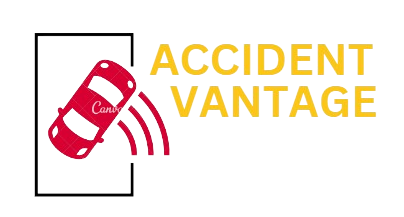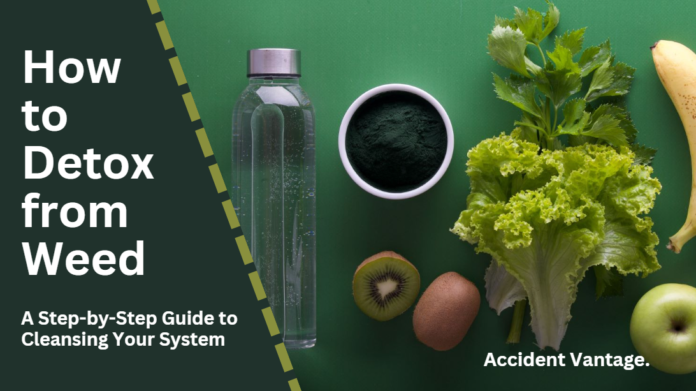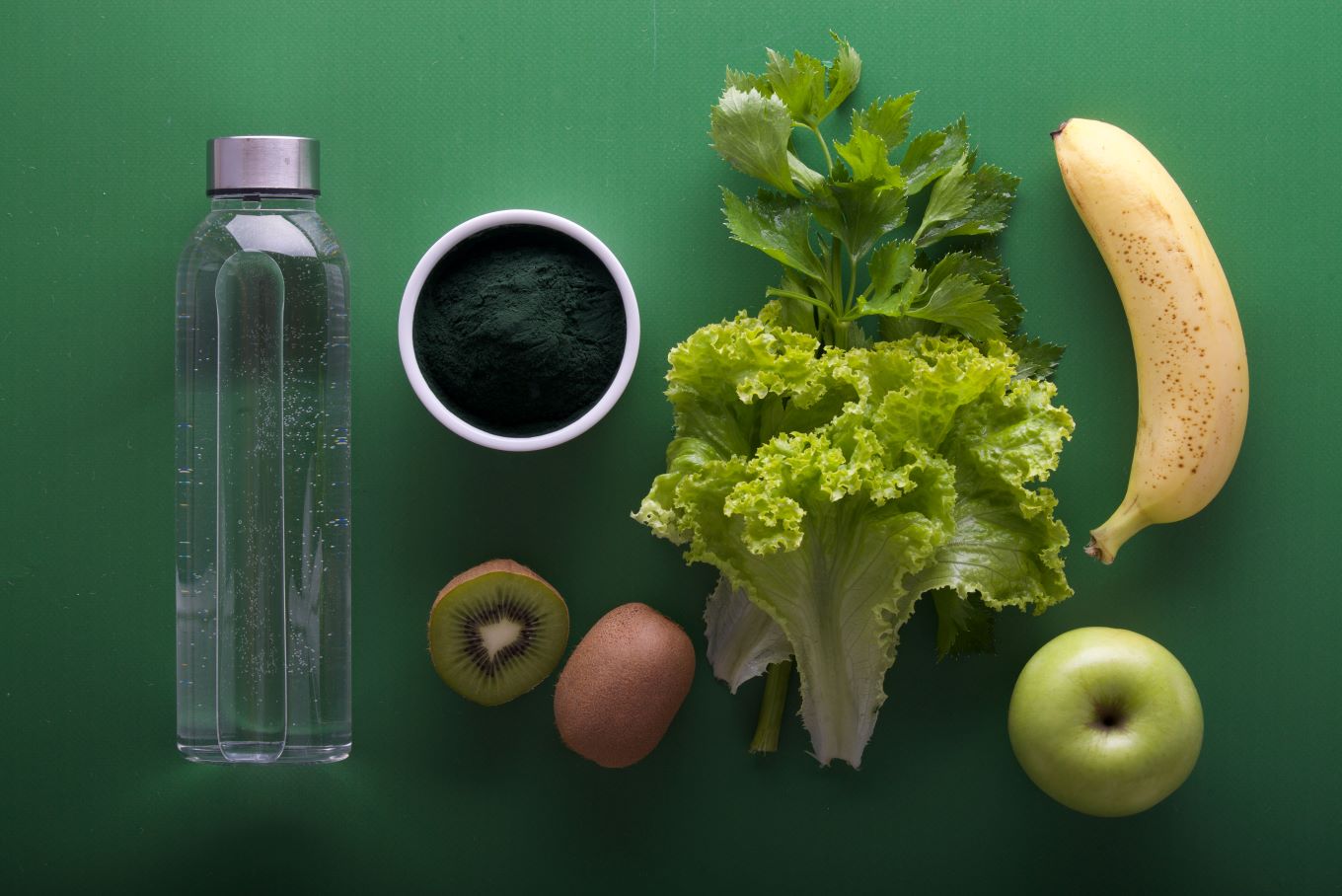Weed, Mary Jane, pot – you name it. It’s all a part of the American vocabulary. But with the rising usage of weed or Marijuana, there’s an increasing need to understand its effects. And, more importantly, how to detox from weed when necessary.
According to the National Institute on Drug Abuse (NIDA), weed is the most popular illegal drug in the US. It’s a widespread part of the cultural landscape, with usage rates soaring from 11% to a staggering 17.5% among individuals 12 years and older.
But as the saying goes – What Goes Up Must Come Down – knowing how to detox from weed has become a hot topic. In this step-by-step guide, we’ll explore the ins and outs of weed detoxification and how to detox from weed, offering a roadmap for those looking to hit the refresh button on their system.
What is Weed Detox?
Weed detox, marijuana detox, and THC detox are often used interchangeably, referring to the process of clearing the body of residual cannabis compounds, primarily tetrahydrocannabinol (THC). While the specifics may vary, the main goal remains the same: to eliminate the remnants of the drug from the body to restore normal physiological function.
Why Might Someone Want to Detox from Weed?
There are several reasons why someone might choose weed detox:
- Job requirements: Some workplaces conduct drug tests as a part of their hiring process or regular employee screenings. As a result, individuals may need to detox from weed to ensure they pass these tests and maintain their employment.
- Legal obligations: In certain regions, marijuana use is still illegal, and individuals may need weed detox to comply with legal requirements or avoid potential legal consequences.
- Driving and road safety: As the use of Marijuana can impair cognitive functions and motor skills, individuals may opt for weed detox to ensure they can operate vehicles safely and responsibly.
- Health concerns: Prolonged or heavy use of Marijuana can have various health implications, including respiratory issues, cognitive impairment, and potential mental health challenges. Detoxing can be a step toward improving overall health and well-being.
- Personal goals: Some individuals may decide to detox for Marijuana as part of their personal goals for a healthier lifestyle, increased motivation, and improved cognitive function.
- Dependency concerns: Regular or excessive use of Marijuana can lead to psychological dependence, affecting motivation, productivity, and overall quality of life. Detoxing can help break the cycle of dependency and promote a healthier relationship with the substance.
Effects of Weed or Marijuana on Your Body
Before we delve into “how to detox from weed” let’s first understand its effects on your body. The effects of weed on your body can differ depending on many factors, including the method of consumption, dosage, frequency of use, and individual differences.
Some common effects of weed on the body may include:
- Euphoria and relaxation: Weed can induce euphoria, relaxation, and an overall sense of well-being.
- Altered perception: Marijuana can distort the senses, leading to changes in the time and space perception and sensory experiences.
- Increased appetite: Marijuana can stimulate appetite and lead to increased food intake.
- Impaired memory and cognition: Short-term memory impairment and difficulties with concentration and cognitive function can occur, especially with heavy or prolonged use.
- Decreased motor coordination: Weed can impair motor skills and coordination, leading to reduced dexterity and slower reaction times.
- Elevated heart rate: Marijuana use can cause an increase in heart rate, which may be a concern for individuals with certain cardiovascular conditions.
- Dry mouth and red eyes: One of the immediate physical effects of weed is dry mouth and redness in the eyes, often due to the dilation of blood vessels.
- Anxiety and paranoia: In some folks, particularly with higher doses or in susceptible individuals, marijuana use can lead to increased feelings of paranoia.
It’s important to note that the effects of weed can vary from person to person and can be impacted by the specific strain of Marijuana used, the environment, and the individual’s mental and physical health.
Read more: Split Face Diving Accident
How Marijuana is Metabolized in the Body
Marijuana is processed in the body through a complex system involving enzymes and organs, notably the liver’s cytochrome P450 enzymes. These enzymes break down the main psychoactive compound, THC, into various byproducts, including 11-hydroxy-THC and 11-nor-9-carboxy-THC (THC-COOH).
How Marijuana is Metabolized when Smoked or Vaporized
When you smoke or vaporize Marijuana, THC (the active compound) quickly enters your bloodstream through the lungs, reaching your brain to create its high. It also travels to the liver for further breakdown.
How Marijuana is Metabolized when Ingested
If you ingest Marijuana, THC is absorbed from your digestive tract into the bloodstream. However, it undergoes a process in the liver before it can reach your brain, leading to delayed and milder effects compared to smoking or vaporizing.
Factors Affecting Marijuana Metabolism
Several factors impact how quickly your body processes Marijuana:
- Body weight: People with higher body weights tend to process THC more slowly than those with lower body weights.
- Metabolism: Those with faster metabolisms tend to break down THC more quickly than those with slower metabolisms.
- Frequency of use: Regular users typically process THC faster than occasional users.
- Other medications: Certain drugs can interact with the enzymes and change how the body metabolizes Marijuana.
Signs That You Need Weed Detox
Here are some signs that might indicate the need for weed detox:
- Increased tolerance: Needing more weed to achieve the same effects as before.
- Cravings: Strong urges or cravings for Marijuana, leading to frequent use.
- Neglecting responsibilities: Prioritizing marijuana use over daily responsibilities, such as work, school, or personal relationships.
- Social withdrawal: Choosing to spend time alone or with other marijuana users rather than engaging in social activities.
- Tolerance of negative consequences: Accepting negative impacts on health, relationships, or work as a result of marijuana use.
Why Would You Need a Weed Detox Program?
Here are some reasons why you would need a weed detox program:
- Difficulty cutting back: Struggling to reduce or stop Marijuana use despite repeated attempts.
- Health concerns: Experiencing physical or mental health issues related to marijuana use, such as respiratory problems or cognitive impairment.
- Legal implications: Facing legal consequences or concerns related to Marijuana use can prompt the need for a THC detox program.
- Interference with daily life: Noticing that marijuana use is interfering with work, school, or personal relationships, indicating the necessity of a structured weed detox plan.
- Desire for change: Feeling the desire to regain control over one’s life and well-being, prompting the recognition of the need for a comprehensive marijuana detox program.

How to Detox from Weed Naturally – A Step-by-Step Guide
Detoxing from weed naturally can be a gradual process that allows your body to eliminate the residual effects of the drug. Here’s a comprehensive step-by-step guide to help you through this process:
Step 1: Set a Clear Goal
Decide on a clear timeline and goal for your weed detox. Understand why you want to detox and what benefits you hope to achieve. Having a clear goal will motivate you throughout the process.
Step 2: Hydrate Your Body
Drink plenty of water. Hydration helps flush out toxins from your system and keeps you well-hydrated, which can also reduce cravings and withdrawal symptoms.
Step 3: Exercise Regularly
Engage in regular physical activity. Exercise can help speed up the marijuana detox process by elevating blood circulation and promoting the elimination of toxins through sweat. It can also help with mood regulation and reduce cravings.
Step 4: Consume Nutrient-Rich Foods
Focus on a diet rich in vegetables, fruits, and whole grains. These foods are high in vitamins and minerals that support your body during the weed detox process. Incorporate foods that are high in antioxidants to help eliminate toxins.
Step 5: Get Plenty of Rest
Ensure you get enough sleep. Rest is crucial for your body to recover and rejuvenate. Aim for about 7 to 9 hours of quality sleep each night to help your body repair itself and manage any withdrawal symptoms.
Step 6: Try Sauna or Steam Baths
Consider using saunas or steam baths to help accelerate the THC detox process. Sweating can aid in the elimination of toxins and provide relief from some withdrawal symptoms.
Step 7: Practice Mindfulness and Stress Reduction Techniques
Engage in meditation, deep breathing, or yoga to reduce stress and promote overall well-being. Stress management can help you cope with withdrawal symptoms and prevent relapse.
Step 8: Stay Away from Triggers
Avoid situations or environments that may trigger your urge to consume weed. Surround yourself with supportive friends who can understand your goals, appreciate you, and motivate you to keep going.
Step 9: Stay Patient and Persistent
Understand that the weed detox process can take time, and results may not be immediate. Stay patient and persistent in your efforts, knowing that every step you take is a step toward a healthier and more balanced life.
Step 10: Seek Support if Needed
If you find the marijuana detox process challenging, consider seeking support from a therapist, support group, or counselor. Talking to someone who understands your struggles can provide you with the guidance and encouragement you need to stay on track.
Remember, everyone’s body and experience are different. It’s essential to listen to your body and consult a professional if you have any concerns or experience severe withdrawal symptoms during the weed detox process.
Weed Detox Programs and Methods
Several weed detox programs are available, ranging from residential rehab programs to outpatient counseling services. Some programs focus on holistic approaches, incorporating dietary changes, exercise, and counseling, while others may utilize medical interventions and therapies.
Different marijuana detox methods, such as juice cleanses, detox teas, and dietary supplements, have recently gained popularity. While some individuals may find success with these methods, it’s important to note that scientific evidence supporting their efficacy in weed detoxification is limited. It’s crucial to approach these methods cautiously and consult healthcare professionals for guidance.
Read more: What Is A Head-On Collision? – Causes, Injuries, And Law For Head Collisions
Can You Detox from Marijuana by Yourself?
It is possible to detox from Marijuana by yourself, mainly if the usage has been sporadic or of a mild nature. However, it’s essential to approach self-detoxification with caution and awareness of potential challenges.
Individuals with a history of heavy or prolonged marijuana use may find it more challenging to detox without professional guidance and support. It’s crucial to be mindful of any withdrawal symptoms and to prioritize self-care during the THC detox process.
Seeking support from friends and family, engaging in healthy activities, and maintaining a positive mindset can all contribute to a successful self-detoxification journey. However, for individuals with severe dependency or underlying health issues, seeking professional guidance and support is highly recommended.
Risks of Detoxing from Marijuana on Your Own
Detoxing from Marijuana without professional guidance can pose certain risks, especially for individuals with a history of heavy or prolonged use. Some potential risks may include:
- Withdrawal symptoms: Abruptly stopping marijuana use can lead to various withdrawal symptoms, including irritability, insomnia, anxiety, and changes in appetite
- Mental health implications: Individuals with underlying mental health conditions may experience heightened symptoms during the weed detox process, potentially leading to increased anxiety, depression, or mood swings.
- Lack of accountability: Detoxing alone may lead to a lack of accountability, making it easier to revert to old habits or coping mechanisms hindering the progress of the detoxification process.
- Medical complications: In some cases, individuals may have underlying health issues that could be exacerbated during the weed detox process. Without proper medical supervision, these complications may go unnoticed or untreated.
- Relapse risk: Without a structured support system, the risk of relapse can be higher, particularly during challenging moments or when facing intense cravings.
Considering these potential risks, it is crucial for individuals with a history of heavy or prolonged marijuana use to seek professional guidance and support during the detoxification process to ensure a safe and effective transition to a healthier lifestyle.
The Benefits of Weed Detox
Weed detox can offer several benefits to overall well-being and improved quality of life. Some of the key benefits include:
- Improved mental clarity: Weed detox can lead to improved cognitive function, enhancing mental clarity, focus, and overall productivity.
- Enhanced mood: With the elimination of residual toxins, individuals may experience an uplift in mood, leading to a more positive outlook and a greater sense of emotional well-being.
- Better physical health: Weed detox can lead to improved respiratory function, better cardiovascular health, and a strengthened immune system, contributing to overall physical well-being.
- Increased energy levels: Eliminating toxins from the body can boost energy levels, promoting a more active and vibrant lifestyle.
- Reduced tolerance: Marijuana detox can help reduce the body’s tolerance to Marijuana, making it easier to manage usage and prevent the buildup of toxins in the system.
- Enhanced motivation: With a clearer mind and improved physical well-being, individuals often experience a boost in motivation and drive, allowing them to pursue their goals and aspirations with renewed vigor.
- Better sleep: Weed detox can lead to improved sleep patterns and better overall sleep quality, enhancing rest and rejuvenation.
Overall, the benefits of weed detox can extend to various aspects of life, promoting a healthier and more balanced lifestyle.
Read more: Ultimate Guide to Choosing an Auto Accident Attorney Dynomoon: Expert Tips and Insights
What are the Symptoms of Weed Withdrawal?
You might wonder, ‘What to expect during weed detox?’ Withdrawal symptoms from weed, though generally less severe compared to some other substances, can still present some discomfort. Common symptoms may include:
- Excessive sweating
- Fever
- Negative mood
- Stomach pains
- Anxiety
- Shakiness
- Sleep problems
- Depression
- Cravings to use the drug
- Headaches
- Decreased appetite
- Dehydration
How to Cope with Withdrawal Symptoms
Coping with withdrawal symptoms from weed can be challenging, but several strategies can help ease the process. If you’re wondering, “How can I manage weed withdrawal symptoms?” here are some effective coping mechanisms:
- Establish a support system: Lean on family, friends, or other support groups to share your experiences and seek guidance during this period.
- Engage in relaxation techniques: Practice meditation, deep breathing exercises, or yoga to promote relaxation and reduce stress levels.
- Maintain a healthy routine: Establish a regular sleep schedule, eat nutritious meals, and engage in regular physical activity to support your overall well-being.
- Distract yourself: Keep yourself occupied with hobbies, activities, or tasks that you enjoy to divert your attention away from withdrawal symptoms.
- Seek professional help: Consider consulting a therapist who can provide guidance tailored to your needs.
- Stay hydrated: Drink a lot of clean water and other hydrating fluids to help flush out toxins and keep your body well-hydrated.
- Practice self-compassion: Be patient and acknowledge that the process may be challenging.
Now that you know ‘how to detox from weed’ and weed withdrawal symptom management, by implementing these coping strategies, you can effectively manage withdrawal symptoms and work towards a successful transition to a healthier marijuana detox journey.
The Significance of Professional Guidance during the Detox Process
Seeking professional guidance during the THC detox process is crucial, especially for individuals with a history of heavy or prolonged marijuana use.
Healthcare professionals can provide personalized guidance, monitor progress, and offer support throughout the weed detox process. They can also address any basic health concerns or psychological issues that may arise during the marijuana detox process, ensuring a comprehensive and safe approach to detoxification.
Cheers to Your Weed Detox Journey!
Knowing how weed detox works is crucial before exploring how to detox from weed. Understanding the steps can make a big difference, whether for a job, legal reasons, or just your health. Remember, it’s important to get help if you need it.
To learn more about the latest legal news, comprehensive guides, and essential resources related to weed detox, visit accidentvantage.com. Till then, we wish you the best of luck on your transformative detox journey.
Frequently Asked Questions – FAQs
1. How long does weed detox take?
The duration of weed detox can vary depending on various factors, including the frequency and amount of marijuana use, individual metabolism, body composition, and overall health. In general, the process can take anywhere from a few days to several weeks for the body to eliminate THC and its metabolites fully.
2. What can I do to increase my chances of success during weed detox?
To increase your chances of success during weed detox, stay committed to the process, seek support from friends and family, practice self-care, set achievable goals, and must avoid triggers that may lead you to relapse.
3. How long does weed stay in your pee?
The duration weed stays in your pee relies on how much and how often you use it, as well as your metabolism. Generally, weed can show up in urine anywhere from 1 to 30 days after the last use.
4. How long does weed stay in your system for a urine test?
The detection window for a urine test for weed is typically 1 to 30 days, depending on the factors mentioned earlier. For chronic heavy users, however, weed can be detectable in urine for up to 90 days.
5. How long does weed stay in your body?
Weed can linger in your body for 90 days, depending on your metabolism and other factors. Remember, the detection window for a drug test is much shorter than this timeframe.
6. How long does weed stay in your urine?
Weed can be present in your urine for about 1 to 30 days after the last use, depending on the factors mentioned earlier.
7. How long does THC stay in urine?
THC, the psychoactive compound in weed, can be detectable in urine for approximately 1 to 90 days after the last use, depending on the factors mentioned earlier.
8. How long does THC stay in your system?
THC can remain in your system for up to 90 days, depending on your metabolism and other factors. Remember that the detection window for a drug test is typically shorter than this duration.
9. What are some effective tips for passing a drug test after detoxing from weed?
To pass a drug test after weed detox, allow enough time for your body to eliminate THC, stay well-hydrated, exercise regularly, explore detox products, and consult healthcare professionals for guidance.
10. What are some resources for long-term recovery after detoxing from weed?
For long-term recovery after weed detox, consider joining support groups, engaging in therapy or counseling sessions, exploring community centers, seeking reputable rehabilitation centers, and utilizing online resources focused on maintaining sobriety and preventing relapse.
Read more: McDonalds Drive Thru Freak Accident: An Innocent Life Lost







